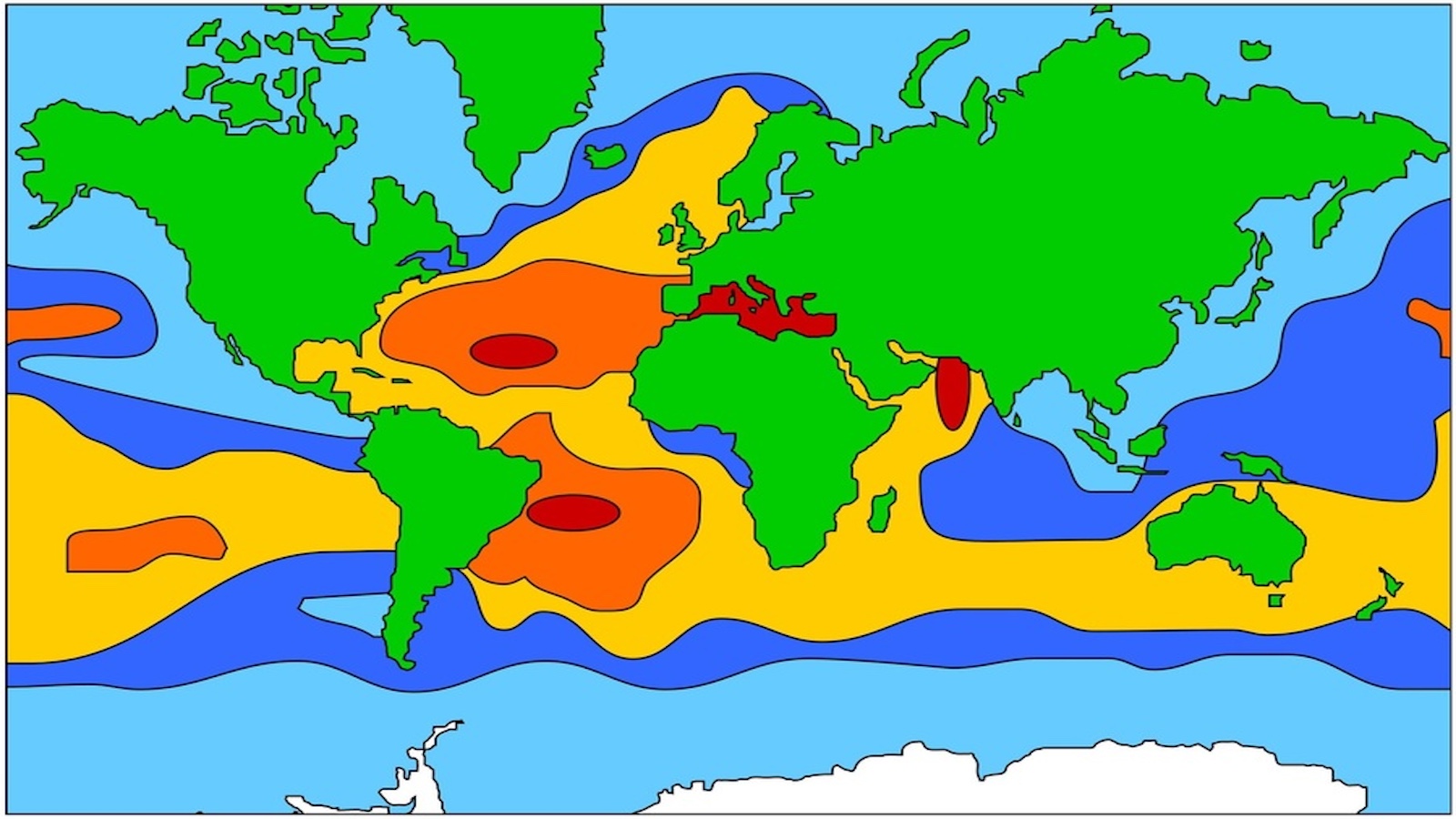James Randi is the founder of the James Randi Educational Foundation (JREF). Randi began his career as a magician, but when he retired at age 60, he switched to investigating[…]
Sign up for the Smarter Faster newsletter
A weekly newsletter featuring the biggest ideas from the smartest people
Hi, Mom?…Yeah, I’m in a coffin at the bottom of the La Hogue River.”
Question: What was your scariest moment as an escape artist?
rn
rnJames Randi: Oh yeah. Yeah, I came close at least twice to rnactually losing my life. Well, one happened in Toronto, Canada, the rnother one happened in Edgewater, Nova Scotia. I was sealed up in a rncoffin, they had cables fastened to me and they lowered me into the, I rnforgot—the LaHave River, I think it was outside of Halifax. I hope I rngot these names right. And they had a telephone with me and a rnmicrophone, headphones, the whole thing and I was there in the coffin. rnThere was a huge crowd out on the embankment. It was some sort of a rnfestival. I don’t remember what it was exactly. And they connected me rnwith my mother who was back in Toronto, Canada. And the phone rang and rnshe picked it up and she said, “Hello.” And I said, “Hi. This is your rnson.” And she said, “You sound funny.” And I said, “Yeah, I’m in a rncoffin at the bottom of the LaHave River.” And she said, “Oh come on.” rn And I said, “Yes, I am. And there’s a whole crowd of people out there rnlistening to you.” And she fell silent. A little stage struck, I rnguess. But eventually she got over that and we had a little bit of a rnchat. And then I noticed something very strange happening. There was rnmud starting to ooze over the transparent panel, the glass panel I had rnin the top of the coffin through which I could see the daylight up abovern me. And I was under about six or eight feet of water held down by rnbarbells and various things to weight me down. And they had a diver in rnbeside me in an old diving suit, on with a big round headpiece and... rnhelmet, that is. And he saw that I was slipping out of the harness and rninto the mud at the bottom of the LaHave River. And but for his rningenuity, I might still be there someplace, rather wasted and waiting rnfor a rescue, I would guess. But the diver refitted the loop of cable rnaround the coffin and I stayed down for the rest of the time and they rnfinally hauled me up. So, that was very close. I could have drifted a rnway down the river with the heavy current, and they could have lost me rnaltogether. And what would the world be without me? I mean, after all,rn let’s face it.
rn
rnThen the other example was, I got locked up in a safe in Toronto, rnCanada, in the Sun newspaper office. I wanted to do a stunt that they rnwould remember me for, and they had this steel safe and I jammed myself rninto it and barely got into the thing. I told them to close the door rnand I would escape. And my assistant, Moses, was outside at the time. rnAnd I sort of depended on him and he had to help me out of this one rntoo. I worked at the door, pried on the back of the door and I saw the rncombination there and I felt the door coming out at me. And I knew whatrn that meant. It was spring loaded in such a way that if anyone tried torn knock the mechanism out of place, bars would jump in at the side of thern safe and seal me in permanently. And they could only cut me out with rnan acetylene torch and that would take, a long period of time at very rnhigh temperatures and I wouldn’t survive that. So, I just said, rn“Moses.” And he said, “Yeah.” I said; have them dial up the combinationrn on the safe. So, the manager sat down and I heard zip, zip, zip, zip, rnzip, zip, zip, zip, clunk. No, zip, zip, zip, and I said, Moses, find rnthe person who opens it every morning. And a lady came over, the rnmanager was breaking down, he couldn’t stand the tension. So, she rnfinally dialed it up and "click," the door fell open. And I fell out onrn the floor. I passed out as I fell out on the floor as a matter of rnfact. So that was a second instance of my coming close to cashing in.
Recorded April 16, 2010
Interviewed by Austin Allen
rn
rnJames Randi: Oh yeah. Yeah, I came close at least twice to rnactually losing my life. Well, one happened in Toronto, Canada, the rnother one happened in Edgewater, Nova Scotia. I was sealed up in a rncoffin, they had cables fastened to me and they lowered me into the, I rnforgot—the LaHave River, I think it was outside of Halifax. I hope I rngot these names right. And they had a telephone with me and a rnmicrophone, headphones, the whole thing and I was there in the coffin. rnThere was a huge crowd out on the embankment. It was some sort of a rnfestival. I don’t remember what it was exactly. And they connected me rnwith my mother who was back in Toronto, Canada. And the phone rang and rnshe picked it up and she said, “Hello.” And I said, “Hi. This is your rnson.” And she said, “You sound funny.” And I said, “Yeah, I’m in a rncoffin at the bottom of the LaHave River.” And she said, “Oh come on.” rn And I said, “Yes, I am. And there’s a whole crowd of people out there rnlistening to you.” And she fell silent. A little stage struck, I rnguess. But eventually she got over that and we had a little bit of a rnchat. And then I noticed something very strange happening. There was rnmud starting to ooze over the transparent panel, the glass panel I had rnin the top of the coffin through which I could see the daylight up abovern me. And I was under about six or eight feet of water held down by rnbarbells and various things to weight me down. And they had a diver in rnbeside me in an old diving suit, on with a big round headpiece and... rnhelmet, that is. And he saw that I was slipping out of the harness and rninto the mud at the bottom of the LaHave River. And but for his rningenuity, I might still be there someplace, rather wasted and waiting rnfor a rescue, I would guess. But the diver refitted the loop of cable rnaround the coffin and I stayed down for the rest of the time and they rnfinally hauled me up. So, that was very close. I could have drifted a rnway down the river with the heavy current, and they could have lost me rnaltogether. And what would the world be without me? I mean, after all,rn let’s face it.
rn
rnThen the other example was, I got locked up in a safe in Toronto, rnCanada, in the Sun newspaper office. I wanted to do a stunt that they rnwould remember me for, and they had this steel safe and I jammed myself rninto it and barely got into the thing. I told them to close the door rnand I would escape. And my assistant, Moses, was outside at the time. rnAnd I sort of depended on him and he had to help me out of this one rntoo. I worked at the door, pried on the back of the door and I saw the rncombination there and I felt the door coming out at me. And I knew whatrn that meant. It was spring loaded in such a way that if anyone tried torn knock the mechanism out of place, bars would jump in at the side of thern safe and seal me in permanently. And they could only cut me out with rnan acetylene torch and that would take, a long period of time at very rnhigh temperatures and I wouldn’t survive that. So, I just said, rn“Moses.” And he said, “Yeah.” I said; have them dial up the combinationrn on the safe. So, the manager sat down and I heard zip, zip, zip, zip, rnzip, zip, zip, zip, clunk. No, zip, zip, zip, and I said, Moses, find rnthe person who opens it every morning. And a lady came over, the rnmanager was breaking down, he couldn’t stand the tension. So, she rnfinally dialed it up and "click," the door fell open. And I fell out onrn the floor. I passed out as I fell out on the floor as a matter of rnfact. So that was a second instance of my coming close to cashing in.
Recorded April 16, 2010
Interviewed by Austin Allen
▸
3 min
—
with






